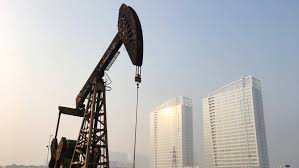State oil firms have stopped taking margin hit on petrol and diesel sales

NEW DELHI (Reuters) – Indian state-owned fuel retailers have stopped absorbing a government-mandated cut of 1 rupee (0.014 U.S. cents) a liter in their marketing margins on the sale of petrol and diesel due to a steep fall in global oil prices, sources said.
In October, India’s finance ministry had cut its production tax on the two fuels by 1.50 rupees a liter and had asked state-owned fuel retailers to reduce their marketing margins by 1 rupee a liter to insulate consumers from a surge in global oil prices at the time.
But oil prices have slumped in recent weeks allowing the marketing margin to be restored to its former levels, said a source privy to the matter.
In October, companies were told to gradually recover the reduction in the margins if crude prices fell, two finance ministry officials said.
“Now that the oil prices have come down they are now able to compensate the losses,” one of the officials said.
It means that India’s state-owned oil refiners, who are also its main fuel retailers, will not be passing on all the benefits of the drop in crude prices to consumers as they seek to recoup the margin hit they have been taking.
This is reflected, at least in part, by the relative difference in the recent declines of Indian fuel prices and global benchmarks. The price of Brent crude, Singapore gasoline and Arab Gulf Diesel have declined between 37-40 percent since October 1 while Indian petrol and diesel prices have been reduced by about 17-18 percent, according to Reuters calculations.
That loss of margin should be full reversed by the March end of the current fiscal year, the official added.
The sources declined to be named because of the sensitivity of the subject.
The state-owned retailers – Indian Oil Corp, Hindustan Petroleum Corp and Bharat Petroleum Corp – control most of the fuel retail business in India.
The three companies did not immediately respond to Reuters’ requests for comment.
Petrol and diesel prices in India are linked to Singapore gasoline prices and Arab Gulf diesel prices, which mostly track movements in crude oil prices.


